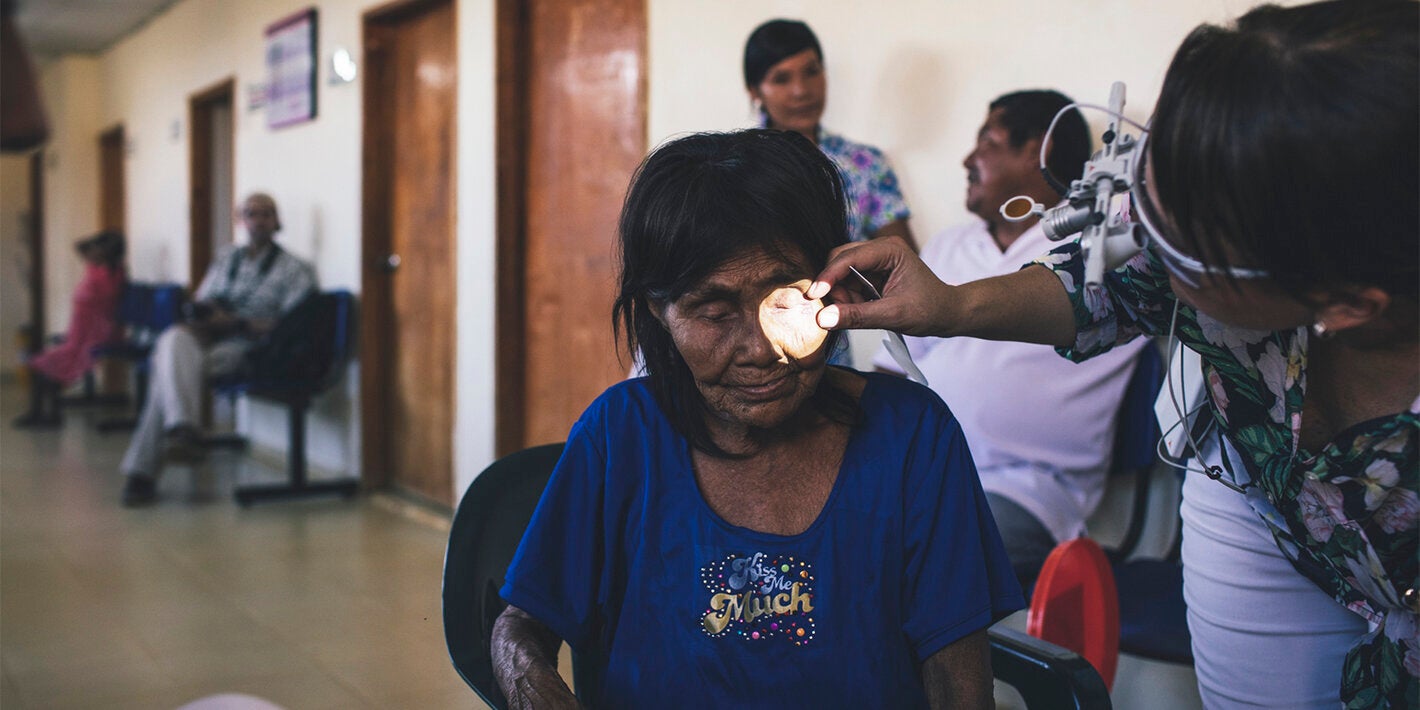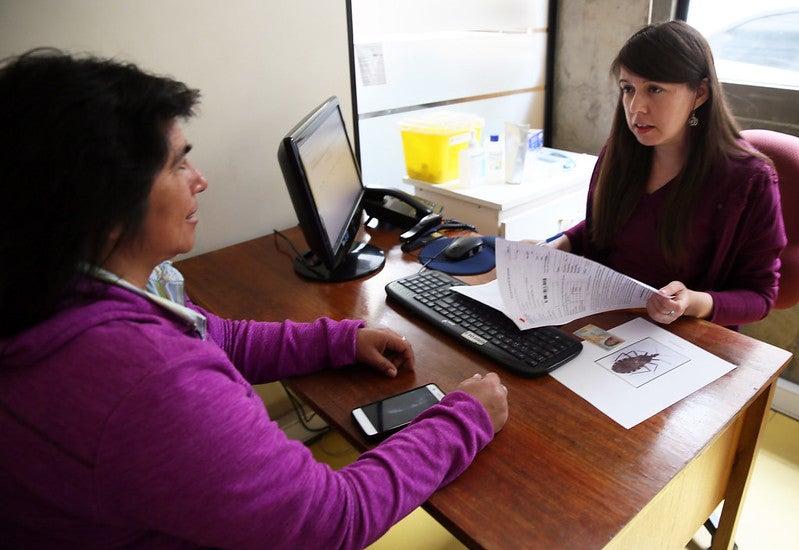
Washington, D.C., 16 June 2021 (PAHO/WHO) - Institutions from 6 countries throughout Latin America and the Caribbean will receive grants for health research projects that address: trachoma, Elimination of Mother-to-Child Transmission (EMTCT) of Hepatitis B virus and Chagas, schistosomiasis, and tuberculosis.
These grants are part of a new project between the Pan American Health Organization (PAHO), the UNICEF/UNDP/World Bank/WHO Special Programme for Research and Training in Tropical Diseases (TDR), “operational research to support the elimination of communicable diseases in the Latin American and Caribbean region.”
The aim of the grants is to facilitate and strengthen elimination-oriented operational research in selected communicable diseases through an integrated approach, emphasizing life course and primary health care (PHC) strategies. Grants were awarded to 7 research institutions from 6 countries in Latin America and the Caribbean: Argentina, Brazil, Colombia, Cuba, Peru and St. Kitts and Nevis. Awardees will receive up to $30,000 dollars, which can be used to pay for research time, data collection, analysis, and other related research activities.
Selected awardees will conduct operational research on elimination of mother-to-child transmission of hepatitis B and Chagas; latent tuberculosis infection and diagnosis; schistosomiasis; and trachoma.
“One of the main strategies to advance in the elimination of diseases in the Region is through effective and integrated operational research that seeks to achieve economies of scale by boosting integration of quality-assured health services, and laboratory networks, as well as by promoting policies that favor community mobilization and health promotion efforts,” said Dr. Marcos Espinal, Director of the Department of Communicable Diseases and Environmental Determinants of Health.
Some of the projects that were selected to receive grants include an initiative from the Universidade Federal do Espírito Santo in Brazil, to evaluate the effectiveness of using video telemonitoring system (VDOT) to observe adherence to latent tuberculosis treatment among migrants versus a self-administered treatment (DOT) in order to improve tuberculosis and migrant health policies in a COVID-19 context.
A project in Argentina seeks to evaluate the effectiveness of a new and more sensitive diagnostic procedure (LAMP) compared to the standardized molecular diagnostic (PCR) to detect at an early stage the avoidable mother-to-child transmission of Trypanosoma cruzi, the cause of congenital Chagas, a fully treatable disease if diagnosed early. Currently, around 50% of infections to newborns are not detected due to low sensitivity of the diagnostic technique and a long 10-month waiting time for final diagnostic.
A further project to receive funding includes a mixed methods study to measure factors associated to the lack of systematic face washing among indigenous populations aged 1 to 9 years old in trachoma endemic areas of Alto Amazonas, Peru. The goal is to improve the technical definition of facial cleanliness and interventions around facial hygiene, following clear evidence that washing interventions is one of the most effective components to address trachoma.
Following the selection of grant recipients, teams will now develop a protocol to conduct operational research targeting the elimination of diseases. This protocol will be developed in coordination with PAHO and TDR and will go through ethical committee evaluations at the national and regional level. Grantees will then begin data collection activities. Technical assistance will be provided throughout the activities to ensure the production of valid and relevant research results and to assist in the integration of results into the health program, policy and/or system. It is expected that every recipient publishes a peer-reviewed article as well as a policy brief to demonstrate improved effective interventions as part of the disease elimination strategy.
Selected grantees:
- Universidade Federal do Espirito Santo - UFES, Brazil: TB-3HP
Eficácia do VDOT na adesão ao tratamento de curta duração (3HP) para a tuberculose latente em migrantes em Manaus. - Fundación Mundo Sano, Argentina: EMTCT-plus
Risk factors for mother-to-child transmission of Trypanosoma cruzi and Hepatitis B in the cross-border area between Argentina, Bolivia and Paraguay. - Ross University School of Veterinary Medicine, St. Kitts and Nevi: Schistosomiasis
Geographical distribution and infection status of intermediate host snail(s) of Schistosoma mansoni in St Lucia: Is there evidence transmission has been interrupted? - Escuela Superior de Oftalmología del Instituto Barraquer de América, Colombia: Trachoma
Mediadores socioculturales que intervienen en la implementación del lavado facial en población indígena de 1 a 9 años de las áreas endémicas para tracoma, Vaupés, Amazonía colombiana. - Instituto de Medicina Tropical 'Pedro Kouri', Cuba: TB-Diag
Impacto del diagnóstico rápido y temprano de contactos de casos con tuberculosis (incluidos niños) en la etapa de eliminación de la enfermedad en Cuba. - Instituto de Investigaciones en Ingeniería Genética y Biología Molecular, Argentina: Chagas
Diagnóstico molecular temprano de Chagas congénito: Transferencia e implementación en maternidades de instituciones de salud pública. - Universidad Peruana Cayetano Heredia, Peru: Trachoma
Mixed methods study of face washing in Alto Amazonas, Peru




